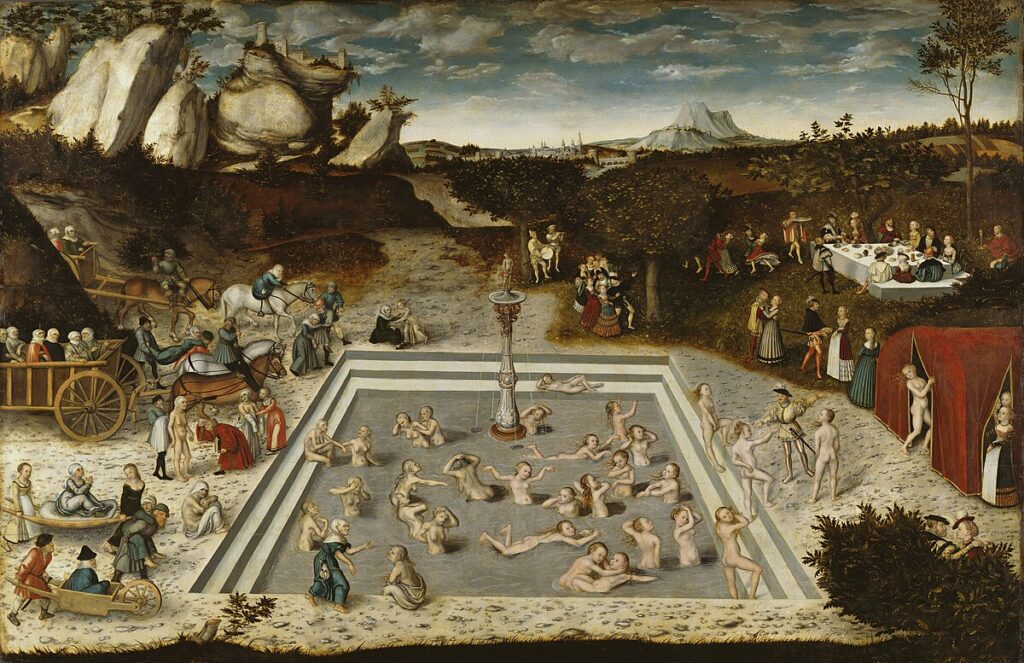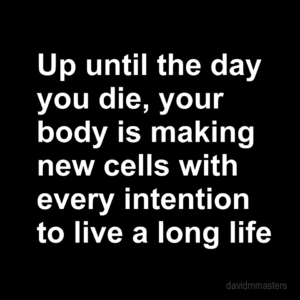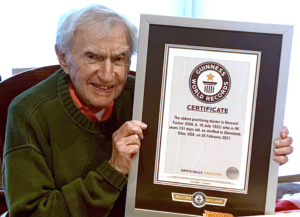For years. Mankind has been looking for a way to look and be younger, live longer. Healthy aging and longevity are now within your grasp. So, if you’re looking to extend the quality of life in later years, to cheat “old age” or premature aging by discovering the fountain of youth or some magic potion for youth and longevity, we’re almost there.
As the wheels of progress continue to turn, quite spectacularly, the combination of science, ingenuity, and blind luck has introduced ideas, methods, and ingredients that have been proven to both increase youthful enjoyment of one’s later years and extend life, well beyond what one might have expected.
The Top 6 Things You Can Do to Live Long and Prosper,
-
- Genetic Predisposition
- Calorie Reduction
- High Vibration Healthy Diet
- Detoxification
- Medications
- Spiritual Expansion
Let’s Take a look at some of them.
1 – Genetic Predisposition
Genetic inheritance does contribute to an individual’s lifespan potential. Some families may possess genetic variants associated with longevity, which can confer certain advantages. Key points to consider include:
-
- Longevity Genes: Research has identified specific genetic variations that seem to be associated with a longer lifespan. These genes often influence critical factors such as cellular repair mechanisms, inflammation regulation, and DNA stability. However, it is important to note that genetics is just one piece of the puzzle and does not solely determine longevity.
- Familial Health History: Understanding your family’s health history can offer insights into potential genetic predispositions for certain diseases. This knowledge allows for early screenings and proactive lifestyle choices to mitigate risks and promote longevity.
The Role of Healthy Habits:
While genetics may set the stage, lifestyle choices play a crucial role in determining the actual lifespan achieved. Adopting healthy habits can positively influence longevity and overall health:
-
- Balanced Diet: Consuming a balanced diet rich in fruits, vegetables, whole grains, lean proteins, and healthy fats provides essential nutrients while reducing the risk of chronic diseases. Focus on moderation, portion control, and choosing nutrient-dense foods.
- Regular Exercise: Engaging in regular physical activity promotes cardiovascular health, strengthens muscles and bones, reduces stress, and enhances overall well-being. Aim for a combination of aerobic exercises, strength training, and flexibility exercises.
- Stress Management: Chronic stress can negatively impact health and accelerate the aging process. Incorporate stress management techniques such as meditation, mindfulness, yoga, or engaging in hobbies to promote emotional well-being.
- Quality Sleep: Prioritize good sleep habits by maintaining a consistent sleep schedule, creating a conducive sleep environment, and practicing relaxation techniques before bed. Quality sleep supports immune function, cognitive health, and overall vitality.
- Avoidance of Harmful Substances: Minimize or eliminate tobacco, excessive alcohol consumption, and illicit drug use, as they significantly impact health and reduce lifespan.
Practical Tips for Cultivating Healthy Habits:
Incorporating healthy habits into daily life can be challenging but rewarding. Consider these tips for developing sustainable habits:
-
- Set Realistic Goals: Start with small, achievable goals that are specific and measurable. Gradual progress is more sustainable and helps build momentum.
- Prioritize Consistency: Consistency is key when developing healthy habits. Make them a regular part of your routine, and gradually increase the intensity or duration over time.
- Seek Support: Engage with supportive friends, family, or community groups that share similar health goals. Having a support network can provide motivation and accountability.
- Embrace Mindfulness: Cultivate self-awareness and mindfulness in your daily life. Pay attention to your body’s signals, emotions, and responses to different habits and make adjustments accordingly.
2 – Calorie Reduction
Calorie reduction, also known as caloric restriction (CR), refers to the deliberate reduction in the number of calories consumed while maintaining adequate nutrition. Numerous studies conducted on various organisms, ranging from yeast to mammals, have consistently shown that CR can extend lifespan. The benefits of CR include:
-
- Enhanced Metabolic Efficiency: Calorie reduction encourages the body to become more metabolically efficient by promoting cellular repair and reducing oxidative stress. This enhanced efficiency is believed to slow down the aging process and delay age-related diseases.
- Improved Insulin Sensitivity: CR has been shown to enhance insulin sensitivity, reducing the risk of developing type 2 diabetes and improving overall metabolic health.
- Delayed Age-Related Diseases: Calorie reduction has been linked to a decreased incidence of age-related diseases such as cardiovascular diseases, certain types of cancer, and neurodegenerative disorders.
Consider the following tips:
-
- Opt for Nutrient-Dense Foods: Focus on consuming foods that are rich in essential nutrients while being relatively low in calories. Include plenty of fruits, vegetables, whole grains, lean proteins, and healthy fats in your diet.
- Practice Portion Control: Be mindful of portion sizes and avoid overeating. Use smaller plates, eat slowly, and listen to your body’s hunger and satiety signals.
- Limit Empty Calories: Minimize the consumption of foods high in added sugars, unhealthy fats, and refined carbohydrates, as they provide little nutritional value while contributing to weight gain and increased disease risk.
- Intermittent Fasting: Consider incorporating intermittent fasting, which involves restricting eating to specific time windows, such as an 8-hour period each day. This approach can mimic some of the benefits of caloric restriction.
3 – High Vibration Healthy Diet
High-vibration healthy diets emphasize consuming foods that are rich in nutrients and energetic qualities, supporting various aspects of longevity:
-
- Nutrient Density: Fresh raw organic fruits and vegetables, along with organic nuts and herbs, are abundant in vitamins, minerals, antioxidants, and phytochemicals. These nutrients support cellular health, strengthen the immune system, and combat oxidative stress, potentially slowing down the aging process.
- Alkalizing Effect: High vibrational foods, particularly raw fruits, and vegetables, have an alkalizing effect on the body, maintaining its pH balance. An alkaline environment may help reduce inflammation and create an inhospitable environment for disease development.
- Detoxification and Cellular Regeneration: A diet rich in high-vibration foods can support the body’s natural detoxification processes, enabling the elimination of accumulated toxins. This detoxification, combined with the abundance of nutrients, facilitates cellular regeneration and renewal.
Benefits for Overall Health:
High-vibration healthy diets offer various benefits that positively impact overall health:
-
- Improved Digestion: Fresh raw organic fruits and vegetables, along with slow-cooked meals, are often easier to digest and can promote optimal gut health. A healthy digestive system enhances nutrient absorption and supports overall well-being.
- Enhanced Energy Levels: High vibrational foods provide a sustained release of energy, keeping blood sugar levels stable and preventing energy crashes. This promotes vitality, mental clarity, and improved physical performance.
- Reduced Inflammation: Processed, GMO and heavily-cooked foods often contain pro-inflammatory substances that can contribute to chronic inflammation in the body. High-vibrational foods, on the other hand, are rich in anti-inflammatory compounds, potentially reducing the risk of chronic diseases associated with inflammation.
- Optimal Weight Management: High vibrational diets emphasize whole, unprocessed foods that are naturally low in calories and high in fiber. This approach supports healthy weight management and can reduce the risk of obesity-related conditions.
Practical Tips for Incorporating High-Vibrational Healthy Diets:
Adopting a high vibrational healthy diet can be a transformative step towards extended lifespan and optimal health. Consider the following tips:
-
- Prioritize Whole Foods: Emphasize fresh raw organic fruits and vegetables, slowly cooked meals, organic nuts, and fresh herbs. Include a variety of colors to ensure a broad spectrum of nutrients.
- Minimize Processed Foods: Limit or avoid heavily processed, GMO foods that may contain additives, preservatives, and unhealthy fats. Opt for whole, unprocessed options instead.
- Practice Mindful Eating: Slow down, savor each bite, and pay attention to your body’s hunger and satiety signals. This approach encourages better digestion and mindful food choices.
- Plan and Prepare Meals: Set aside time for meal planning and preparation to ensure access to high vibrational foods throughout the week. This can help reduce reliance on convenient but less nutritious options.
- Stay Hydrated: Water is essential for cellular function and overall health. Hydrate adequately throughout the day to support digestion, detoxification, and nutrient absorption.
- Gradual Transitions: If transitioning from a heavily processed diet, introduce high-vibrational foods gradually to allow your palate and body to adjust. Gradual changes are more sustainable in the long run.
4 – Detoxification
Detoxification is a process of eliminating harmful substances and pathogens from the body, which can positively impact lifespan:
-
- Cellular Health: Toxins and pathogens can disrupt cellular function, leading to oxidative stress, inflammation, and DNA damage. By removing these harmful elements, detoxification supports cellular health and helps preserve DNA integrity.
- Organ Function: The accumulation of toxins and pathogens can burden vital organs such as the liver, kidneys, and immune system. Detoxification assists in optimizing organ function, promoting longevity and overall health.
- Improved Immune Response: By eliminating harmful pathogens, detoxification enhances the immune system’s ability to defend against infections and diseases. A strong immune system is crucial for longevity and optimal health.
Benefits for Overall Health:
Detoxification offers several benefits that positively impact overall health:
-
- Enhanced Energy and Vitality: Removing toxins and pathogens can alleviate the burden on the body’s systems, resulting in increased energy levels, mental clarity, and overall vitality.
- Reduced Inflammation: Toxins and pathogens often trigger chronic inflammation, which contributes to various diseases and accelerates aging. Detoxification can help reduce inflammation, promoting longevity and mitigating the risk of chronic conditions.
- Improved Digestive Health: Detoxification supports a healthy digestive system by removing harmful bacteria, parasites, and fungi. This can improve nutrient absorption, relieve digestive discomfort, and support overall well-being.
- Clearer Skin and Radiant Appearance: Detoxification can lead to clearer skin, reduced acne, and a more radiant complexion. By eliminating toxins, the skin can regenerate and maintain a healthy appearance.
Practical Tips for Effective Detoxification:
Incorporating effective detoxification practices into daily life can contribute to extended lifespan and enhanced health. Consider the following tips:
-
- Hydration: Stay adequately hydrated to support the body’s detoxification processes. Drink plenty of water and herbal teas throughout the day to flush out toxins.
- Nutrient-Dense Diet: Focus on consuming a nutrient-dense diet rich in fruits, vegetables, whole grains, lean proteins, and healthy fats. These foods provide essential nutrients that support detoxification pathways in the body.
- Eliminate Processed and Toxic Foods: Minimize or eliminate processed foods, refined sugars, artificial additives, and trans fats from your diet. These substances can burden the body’s detoxification systems.
- Increase Fiber Intake: Include plenty of fiber-rich foods such as fruits, vegetables, whole grains, and legumes. Fiber aids in eliminating toxins from the body through regular bowel movements.
- Supportive Herbs and Supplements: Certain herbs and supplements, such as milk thistle, dandelion root, turmeric, and probiotics, can support detoxification processes and strengthen the immune system.
- Sweat it Out: Engage in activities that promote sweating, such as exercise, saunas, or hot baths. Sweating allows the body to eliminate toxins through the skin.
- Manage Stress: Chronic stress can impede the body’s detoxification processes. Incorporate stress-reduction techniques such as meditation, yoga, deep breathing exercises, or engaging in hobbies to support detoxification.
5 – Medications
While medications are essential for managing specific health conditions, the over-reliance on multiple medications, particularly as one ages, may have unintended consequences:
-
- Polypharmacy Concerns: Polypharmacy refers to the use of multiple medications concurrently. It can lead to drug interactions, increased risk of adverse effects, and potential complications. Reducing the number of medications can help minimize these risks.
- Long-Term Side Effects: Prolonged use of certain medications may contribute to long-term side effects, impacting overall health and potentially reducing lifespan. By reducing medication intake, individuals may mitigate these risks and improve overall well-being.
- Holistic Approach to Health: Relying solely on medications may address symptoms but not necessarily address the root causes of health issues. Adopting lifestyle changes can address underlying factors, promoting holistic health and potentially extending lifespan.
Benefits of Lifestyle Changes:
Embracing healthy lifestyle changes in place of excessive medication usage can have numerous benefits for overall health and longevity:
-
- Improved Physical Well-being: Lifestyle changes such as regular exercise, a balanced diet, and sufficient sleep can enhance physical health, boost the immune system, and reduce the risk of chronic diseases.
- Mental Health Benefits: Engaging in activities like mindfulness meditation, stress management, and social interaction can positively impact mental health, reducing the need for certain medications like antidepressants or sleep aids.
- Weight Management: Lifestyle modifications that promote a healthy weight, such as a nutritious diet and regular physical activity, can reduce the need for medications used to manage obesity-related conditions.
- Enhanced Vitality and Energy: Adopting a healthy lifestyle can lead to increased energy levels, vitality, and improved overall quality of life. This can reduce the reliance on medications that address symptoms of fatigue or low energy.
Practical Tips for Medication Reduction and Lifestyle Changes:
It is important to consult with healthcare professionals before making any changes to medication regimens. Consider the following tips for incorporating lifestyle changes that may reduce medication dependence:
-
- Open Communication with Healthcare Providers: Discuss your desire to reduce medications and explore alternative treatment options with your healthcare team. They can provide guidance tailored to your specific health needs.
- Gradual Medication Reduction: Work with your healthcare provider to develop a gradual tapering plan for medications that can be safely reduced or eliminated over time.
- Embrace Healthy Eating Habits: Adopt a balanced diet rich in fruits, vegetables, whole grains, and lean proteins. Consult with a registered dietitian for personalized dietary recommendations.
- Regular Physical Activity: Engage in regular exercise that suits your abilities and preferences. Aim for a combination of cardiovascular workouts, strength training, and flexibility exercises.
- Stress Management Techniques: Incorporate stress-reducing practices such as meditation, yoga, deep breathing exercises, or engaging in hobbies that bring joy and relaxation.
- Social Connections: Foster social connections and maintain a strong support network. Engage in social activities, join clubs or community groups, and prioritize meaningful relationships.
- Monitor Progress: Regularly assess your overall health and well-being with the help of healthcare professionals. Track improvements in various health markers and communicate any changes in symptoms or conditions.
6 – Spiritual Expansion
Spiritual growth and development can positively impact lifespan through various mechanisms:
-
- Stress Reduction: Expanding one’s spiritual awareness often involves practices such as meditation, mindfulness, and prayer, which promote relaxation, reduce stress levels, and support overall well-being. Chronic stress has been linked to numerous health issues, and mitigating its effects may contribute to an extended lifespan.
- Enhanced Coping Mechanisms: A deepened spiritual connection can provide individuals with a sense of purpose, meaning, and inner strength. This, in turn, equips them with better-coping mechanisms to navigate life’s challenges, including health-related ones, potentially improving health outcomes and longevity.
- Optimized Emotional Well-being: Spiritual growth fosters emotional well-being by cultivating qualities such as gratitude, forgiveness, and compassion. These positive emotions contribute to mental and emotional resilience, leading to improved mental health and potentially extending lifespan.
Benefits for Overall Health:
Spiritual expansion offers various benefits that positively impact overall health:
-
- Improved Mental Health: Expanding spiritual awareness often involves practices that enhance self-reflection, self-acceptance, and self-compassion. This can reduce the risk of mental health disorders, such as depression and anxiety, and promote overall psychological well-being.
- Enhanced Relationships: Developing qualities like tolerance, empathy, and forgiveness through spiritual growth can enhance interpersonal relationships, fostering social support networks and reducing feelings of isolation or loneliness, which have been linked to negative health outcomes.
- Positive Lifestyle Choices: Spiritual expansion can inspire individuals to make healthier lifestyle choices, such as adopting a balanced diet, engaging in regular exercise, and avoiding harmful habits like smoking or excessive alcohol consumption. These choices contribute to improved physical health and increased longevity.
- Increased Resilience: Spiritual growth equips individuals with a sense of inner strength, faith, and hope. This resilience can help individuals navigate difficult life circumstances, including health challenges, and bounce back more effectively, potentially leading to better health outcomes.
Practical Tips for Fostering Spiritual Expansion:
Incorporating spiritual expansion into daily life can be a transformative step towards an extended lifespan and enhanced well-being. Consider the following tips:
-
- Mindfulness and Meditation: Practice mindfulness meditation to cultivate present-moment awareness, reduce stress, and develop a deeper connection with oneself and the world around you.
- Gratitude Practice: Cultivate gratitude by regularly acknowledging and appreciating the blessings, big and small, in your life. Consider keeping a gratitude journal or engaging in daily gratitude reflections.
- Seek Connection: Engage in activities that foster a sense of connection with others, such as participating in community service, joining spiritual or religious groups, or seeking out meaningful conversations and interactions.
- Reflect and Self-Examine: Set aside time for self-reflection, introspection, and examining your values and beliefs. Consider seeking guidance from spiritual leaders, mentors, or therapists to support your journey of spiritual expansion.
- Embrace Nature: Spend time in nature, appreciating its beauty and contemplating the interconnectedness of all living beings. Connect with the natural world to deepen your spiritual connection.
- Practice Compassion and Forgiveness: Cultivate compassion and forgiveness towards yourself and others. Engage in acts of kindness and let go of resentments to foster emotional healing and spiritual growth.







